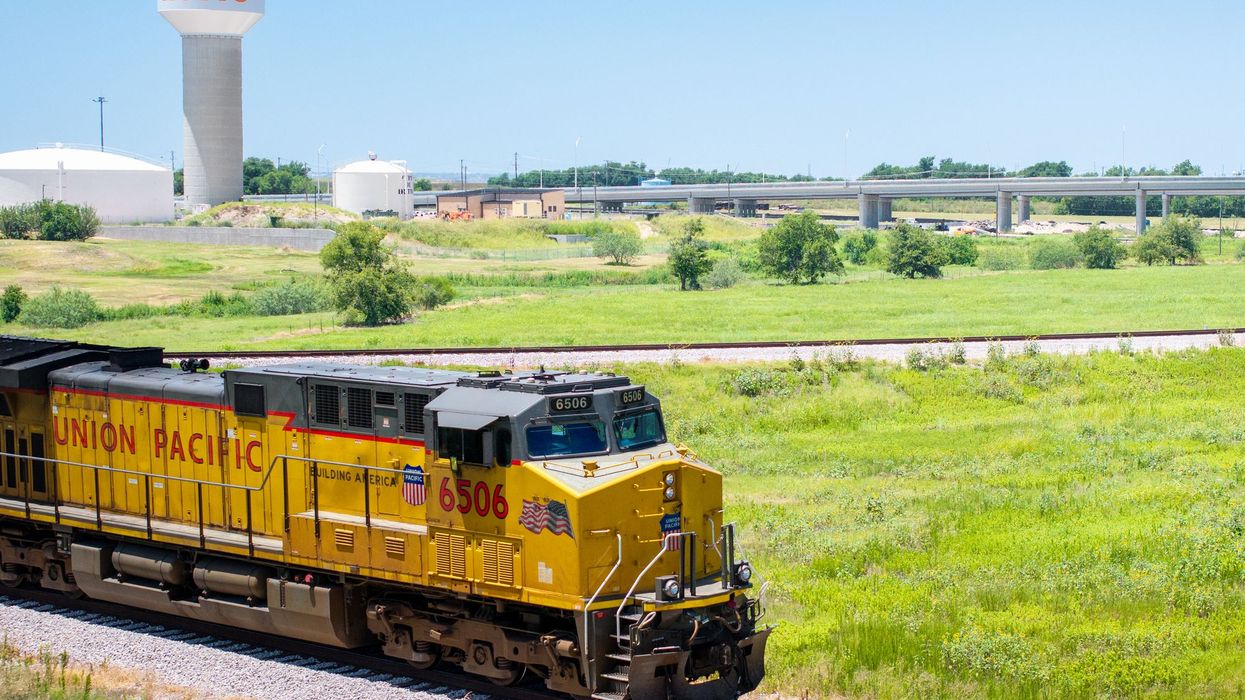Twenty-eight public-interest groups called on Trump's Federal Aviation Administration Tuesday to stop the comeback of highly polluting luxury supersonic planes, which are projected to burn five to seven times more fuel per passenger than typical airliners.
Efforts to build the high-speed planes are again underway, despite the Concorde's flop decades ago.
"The world is burning, and supersonic planes would pour jet fuel on the fire," said Clare Lakewood, a senior attorney at the Center for Biological Diversity. "It would be madness to sabotage our shot at preserving a livable climate so the ultra-rich can take faster flights."
In August 2018 38 environmental, public-health and community groups successfully urged the Senate to reject a provision in the FAA reauthorization bill that would have lifted a 45-year ban on overland supersonic flight in the United States. But the bill passed in October 2018 with a provision requiring the FAA to start setting certification standards that will let civilian supersonic planes fly in U.S. airspace -- and to consider repealing the overland supersonic flight ban.
Today's letter comes in response from a rulemaking from the agency that seeks to "modernize" the procedure for companies to get authorization to perform supersonic test flights over land in the United States. The letter urges FAA acting administrator Dan Elwell to ensure that any action by the FAA is focused on protecting the public and the environment from the harms of supersonic airplanes.
"We must hold the aviation industry accountable to the communities around the world that suffer from its outsized contribution to climate change," said Marcie Keever, legal director at Friends of the Earth US. "In the heat of the climate crisis, resurrecting super-polluting supersonic passenger aircraft makes no sense."
Boom Supersonics is developing an airliner it says could fly commercially by 2023. Supersonic business jets are in development by Spike Aerospace and Aerion Supersonic with the goal of being in service by the mid-2020s.
The return of supersonic airplanes would result in 96 million metric tons of carbon pollution per year, according to a study by the International Council on Clean Transportation.
New supersonic airliners will likely exceed subsonic limits for nitrogen oxides by 40 percent, according to the analysis. Exposure to nitrogen oxides is linked to respiratory disease, heart attacks and strokes.
Supersonic planes also create a loud roar, called a sonic boom, when they break the sound barrier. That continues along the entire supersonic flight route. The planes could double the area exposed to harmful noise pollution around airports compared to standard planes of the same size.
International aviation is among the fastest-growing sources of greenhouse gas pollution. Even without supersonic aircraft, the industry is already expected to generate 43 metric gigatons of carbon dioxide through 2050, consuming more than 4 percent of the world's remaining carbon budget, according to a Center report.




